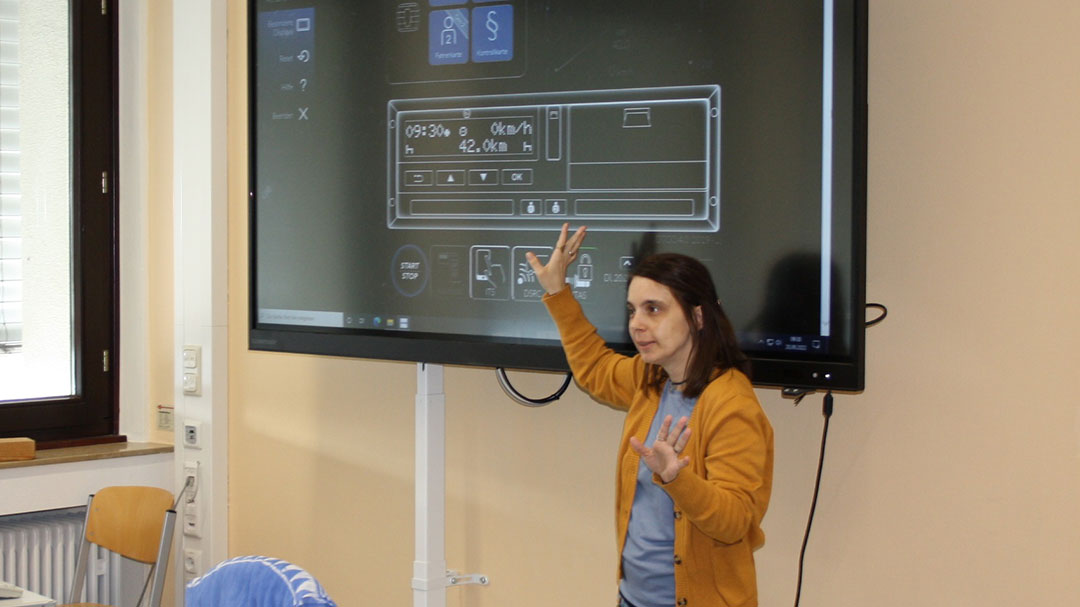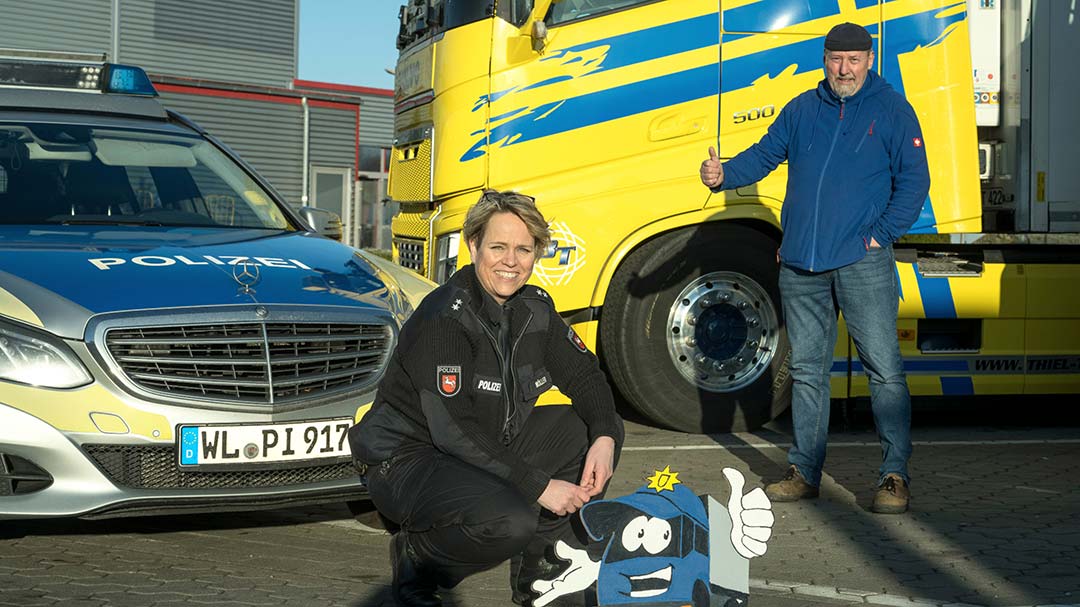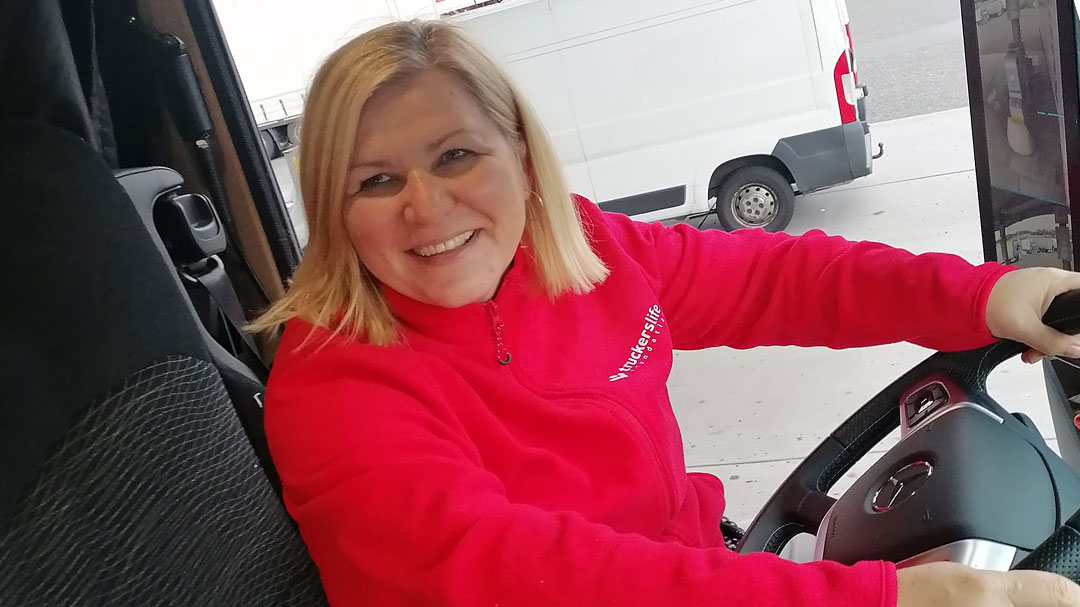Text: Juliane Gringer
Photos: Diana Krug, BPW, Shutterstock
Everyone is looking for male and female truck drivers – Diana Krug trains them. The coordinator for the training of professional drivers at the vocational college in Simmerath knows what makes this profession attractive, what needs to be done to combat the shortage of drivers and how she motivates the next generation to keep at it and go further.
I come from a family of drivers and forwarding agents. I am a qualified forwarding agent and have worked as a dispatcher for several years. The I wanted to progress, develop myself further and still stud. I took economics and politics to become a teacher, with a focus on sustainable mobility. I went into teaching because, on the one hand, I know from my training that teachers can do a lot of harm in life – and, on the other hand, I met very good educators on my second educational path. I wanted to do well and accompany young people on their way.

»We simply have to state it very clearly: social dumping is happening! Although professional drivers have a very demanding job that is closely linked to road safety, they are often not paid adequately.«
Diana Krug, job coordinator for the training of professional drivers at the vocational college in Simmerath
Yes, exactly, the job is important! I always draw the comparison to the human circulatory system: if the veins are our roads, then the drivers are the blood – without them nothing would work, our national economy would die. Politicians must act, time is running out! I myself would therefore like to get more involved in the future, among other things with the association PROFI – Pro Driver Image that campaigns for a better image of the profession and good working conditions. Drivers are the pillars of our society and we simply must do more for them. For example, this association is a good place to start.
»Drivers represent the carrier – and they should also deal with that responsibility.«
Diana Krug, job coordinator for the training of professional drivers at the vocational college in Simmerath
INFO
This Vocational College Simmerath trains ‘professional drivers’ in 36 months, qualifying them to ”drive vehicles safely and responsibly in both passenger and freight transport”. Anyone who is at least 16 years old and has a ”sense of responsibility, independence, reliability, enjoyment of working with technical equipment, flexibility, mobility and a good working condition” can apply. The training is dual, alternating between a freight forwarding or bus company and the vocational school. The school focuses on vehicle systems technology, traffic law, traffic technology and traffic engineering Loading safety. Later on, further training is possible, for example to become a dangerous goods driver, an industrial foreman in road transport or a transport specialist, as well as becoming self-employed.
You can find more articles on the topic of truck drivers here.







